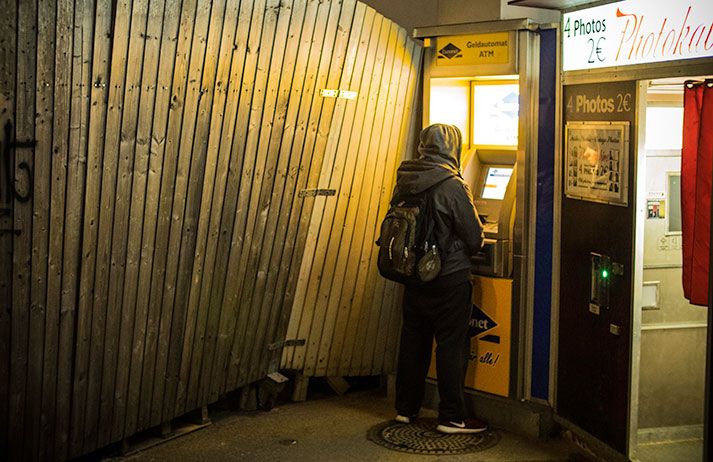Today, banks in the Vesterbro district of Copenhagen became the first in the country to go entirely cashless – with many more expected to follow their lead in the near future.
Whilst this move might benefit the banks’ coffers, for society’s most vulnerable it represents a further obstacle to accessing support.
With many homeless people lacking a debit card, previously they withdrew cash benefits at the start of the month. But now, with cash withdrawals no longer being an option, this support is no longer accessible for them.
No address, no support
“As a homeless person, you do not just order a debit card. We do not have an address to order it to, and for some it is difficult to keep track of their belongings,” explained Christina Strauss, chairman of De hjemløses Landsorganisation (SAND) and someone with first-hand experience of homelessness.
“It is also easier for pushers to follow one over to an ATM than into a bank, so they will have easier access to your money with a debit card,” she continued in an interview on P1 Morgen.
Forced to find cash elsewhere
One major consequence Strauss fears will occur as a result of the move is that homeless people will be forced to find the cash elsewhere, either by crime or prostitution.
Copenhagen Municipality appears to share these concerns. Late on Wednesday evening they met with Finans Danmark to come up with a patchwork solution for Vesterbro’s homeless population – a short-term solution to the problem.
“We have found a solution where the homeless twice a month in January, February and March can come and get cash. However, they must report it four days in advance so that the banks can order the cash back home,” explained Copenhagen’s social mayor Mia Nyegaard.
“I do not think it is a sustainable solution, but it is the best we can do right now,” she said.
Not good enough
For Strauss, this arrangement is far from sufficient. She believes it is highly unlikely that homeless people are likely to have the opportunity to plan four days ahead.
“When you live on the street, you may have a hard time thinking even an hour ahead. You don’t even know where you are going to sleep tonight.”
For his part, trade and industry minister Simon Kollerup stated in a written response to DR News that he was “really happy” that the relevant parties had come together to find a solution “in Copenhagen her and now”.
















